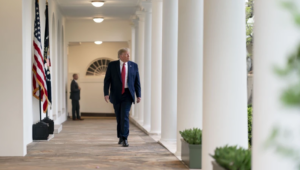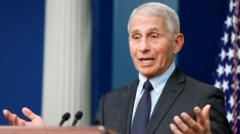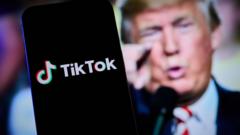Biden's recent decision to block the takeover of US Steel by Japan's Nippon Steel is a defining moment in US economic policy, underscoring his commitment to national security and domestic industry preservation.
Biden Blocks Nippon Steel’s Attempt to Acquire US Steel

Biden Blocks Nippon Steel’s Attempt to Acquire US Steel
In a move that could reshape international business relations, President Biden denies a significant foreign acquisition in the US steel industry.
In a decisive action, US President Joe Biden has prohibited Nippon Steel from acquiring US Steel, fulfilling a political vow amidst rising concerns over national security and international relations. The $14.9 billion deal, announced last December, was obstructed by Biden's administration, citing the importance of US ownership to maintain the integrity of the steel industry and its supply chains.
The rejection stems from intense pressure from the United Steelworkers union, which has voiced its opposition to the deal. The union stated the acquisition posed a significant risk to American steelworkers, and Donald Trump’s administration had previously laid groundwork in taking a skeptical view of foreign investments during his tenure.
Both Nippon Steel and US Steel have expressed their discontent with the decision, claiming it was influenced by political motivations rather than legitimate security concerns. The companies have hinted at potential legal action to challenge the ruling, arguing it undermines the investment climate for foreign firms in the US.
Japanese officials have also voiced disappointment, stressing the implications this decision could have on future investments between the two nations. Yoji Muto, Japan’s industry minister, emphasized the need for careful consideration moving forward.
Despite warnings from US Steel about potential factory closures without the takeover, Biden has articulated concrete reasons for his decision. Speaking at a press conference, he stated, “A strong domestically owned and operated steel industry represents an essential national security priority.” He emphasized that steel is vital for the US's infrastructure, automotive industries, and defense sectors.
The United Steelworkers union commended Biden’s firm stance, calling it a necessary measure for safeguarding both their jobs and the industry. Analysts have noted that while shares of US Steel dropped significantly following the announcement, the door for future negotiations remains open should changes in political leadership occur.
Political analysts predict that if Trump returns to power, new negotiations could arise, potentially altering the terms of the acquisition. With Japan being a crucial US ally, the ramifications of Biden's action on bilateral relations could be extensive, something that future administrations may need to navigate delicately.
The unfolding scenario raises critical questions about the intersection of national security, economic strategy, and the complexities of international partnerships in the globalized economy. As the story develops, the impact on the steel industry and US-Japan relations will be pivotal in shaping the future landscape of foreign investments in America.
The rejection stems from intense pressure from the United Steelworkers union, which has voiced its opposition to the deal. The union stated the acquisition posed a significant risk to American steelworkers, and Donald Trump’s administration had previously laid groundwork in taking a skeptical view of foreign investments during his tenure.
Both Nippon Steel and US Steel have expressed their discontent with the decision, claiming it was influenced by political motivations rather than legitimate security concerns. The companies have hinted at potential legal action to challenge the ruling, arguing it undermines the investment climate for foreign firms in the US.
Japanese officials have also voiced disappointment, stressing the implications this decision could have on future investments between the two nations. Yoji Muto, Japan’s industry minister, emphasized the need for careful consideration moving forward.
Despite warnings from US Steel about potential factory closures without the takeover, Biden has articulated concrete reasons for his decision. Speaking at a press conference, he stated, “A strong domestically owned and operated steel industry represents an essential national security priority.” He emphasized that steel is vital for the US's infrastructure, automotive industries, and defense sectors.
The United Steelworkers union commended Biden’s firm stance, calling it a necessary measure for safeguarding both their jobs and the industry. Analysts have noted that while shares of US Steel dropped significantly following the announcement, the door for future negotiations remains open should changes in political leadership occur.
Political analysts predict that if Trump returns to power, new negotiations could arise, potentially altering the terms of the acquisition. With Japan being a crucial US ally, the ramifications of Biden's action on bilateral relations could be extensive, something that future administrations may need to navigate delicately.
The unfolding scenario raises critical questions about the intersection of national security, economic strategy, and the complexities of international partnerships in the globalized economy. As the story develops, the impact on the steel industry and US-Japan relations will be pivotal in shaping the future landscape of foreign investments in America.























